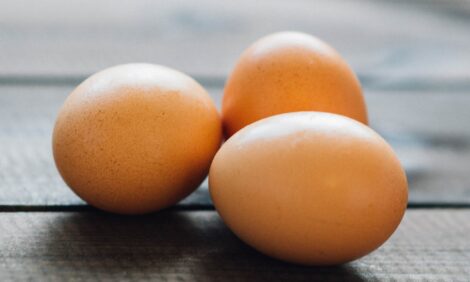



Vets Challenge New Meat Inspection Plans
CANADA - Federal veterinarians are challenging in court the new rules for poultry plant inspection. It has been proposed that in future, slaughterhouses would be allowed greater self-regulation.Chicken and other poultry destined for Canadian dinner tables will pose a greater public health risk under new inspection protocols that allow slaughterhouses to inspect themselves, says a legal action filed by federal veterinarians against the country’s food inspection agency.
Toronto Star reports that, under proposed changes to the country's inspection system dubbed the 'poultry rejection program', slaughterhouse workers will become responsible for food safety monitoring duties now carried out by independent veterinarians employed by the Canadian Food Inspection Agency (CFIA).
A notice of application filed in Federal Court in Ottawa by the Professional Institute of the Public Service against the CFIA says it is 'contrary to the public interest' to replace qualified independent veterinarians with unqualified people who are 'not subject to public scrutiny'.
"For slaughterhouse operators to watch for red spots or anything of the kind (on poultry carcasses) could have more serious ramifications that just the carcass in front of them," said Michèle Demers, president of the union representing 611 federal veterinarians. "It could be communicable disease. It could be that a whole batch of poultry needs to be rejected. It could have all kinds of things that a slaughterhouse operator doesn't have the expertise to make a judgement on. There's a reason why veterinary doctors have been given that role."
* "A shrinking federal presence in slaughterhouses was a contributing factor in last summer's Maple Leaf listeriosis outbreak." |
The veterinarians' union has until the end of the month to file affidavits supporting its application. The CFIA will then have 30 days to file its response in court.
Neither CFIA officials nor federal agriculture minister, Gerry Ritz, would comment to Toronto Star.
The change in inspection protocol is part of a larger move toward greater industry oversight of meat production in Canada. The CFIA has been moving toward a more deregulated inspection system over the past few years including less hands-on inspection by federal inspectors.
A leaked confidential federal document last summer detailed proposed changes including relegating CFIA inspectors to an 'oversight role, allowing industry to implement food safety control programs and to manage key risks'.
The federal biologist who leaked the memo, Luc Pomerleau, was fired in July for 'gross misconduct'. At the time, federal officials dismissed the memo as a discussion paper.
Liberal agriculture critic, Wayne Easter, says this latest revelation from federal veterinarians suggests the government's move to an industry-led inspection system is indeed unfolding.
"It puts a lie to everything we were told last year that this was just a discussion paper," he said. "There just seems to be more and more information slowly coming out showing the government has, in fact, made a move to (plant employee) oversight and there hasn't been a proper discussion in the public or political arena to determine if that is the way we should be going."
The trend toward more industry self-regulation has triggered vigorous criticism from federal inspectors who say their ability to ensure food safety has been undermined by a system in which they spend most of their time monitoring company paperwork rather than monitoring production floors.
Several inspectors have told Toronto Star that a shrinking federal presence in slaughterhouses was a contributing factor in last summer's Maple Leaf listeriosis outbreak. It was the largest recall in Canadian history, leaving at least 20 people dead and hundreds - perhaps thousands - more sickened.
Ms Demers, president of the veterinarians' union, said she and many of her members attempted to raise their public safety concerns with CFIA officials prior to filing legal action. Those efforts failed, she said.
"We believe the courts should decide before this program expands any further. [Slaughterhouse employees] do not have the knowledge or the expertise or the training to deliver that kind of services. That's not their role. It is the role of a veterinarian to do this and that is what is contained in the regulation of the Food Inspection Agency."
The veterinarians' court application says changes to the inspection system will 'eliminate the duty' set out in the Meat Inspection Regulations requiring slaughterhouse workers to refer abnormal carcasses that show evidence of a potential problem to veterinarians for inspection.
As well, the notice says the current system in which veterinarians issue 'condemnation certificates' on animals that are deemed to unfit for consumption will become 'proprietary information under the control of operators of poultry slaughter facilities'.
The changes are already in place in two Quebec slaughterhouses and scheduled to roll out across the country, Ms Demers said. Under the new protocols, veterinarians are relegated to observing production lines for as little as 15 minutes a day, twice a day, she said.
"It used to be one veterinarian on the line inspected all carcasses that showed deviation," Ms Demers told Toronto Star. "They had to certify that all poultry on the line is safe. Now, to ensure everything going by on the food chain for 15 minutes a day twice a day is safe and secure is nonsense. Veterinarians in the system have become little more than paper pushes and form fillers rather than actual on-site inspectors."











